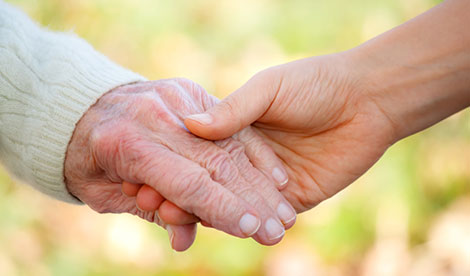

News

Urgent risk assessment needed for all aged care homes
Wednesday August 19, 2020
AMA 7th Submission to the Aged Care Royal Commission
Urgent improvements in aged care and a coordinated response by Federal, State, and Territory governments are needed to prevent the pandemic outbreak in Victorian aged care homes spreading into residential aged care nationwide, the AMA warned today.
In its seventh submission to the Royal Commission on Aged Care Quality and Safety, the AMA called for every residential aged care home in Australia to be urgently and comprehensively assessed for its ability to safely care for residents during the COVID-19 pandemic.
“Aged care was in crisis long before the pandemic started, and the failures of clinical care and clinical governance in aged care homes have simply been amplified by COVID-19,” AMA President, Dr Omar Khorshid, said today.
“AMA members are on the frontline of providing health care to older Australians in residential aged care, and they are witnessing first-hand the impact that the global pandemic is having on some of our most vulnerable community members, and on their families and loved ones.
“Hundreds of elderly Australians have died needlessly, and without family by their side. Doctors, nurses, and other healthcare workers have done their best to comfort and support them in their final days and hours. This is taking an enormous toll on the healthcare workforce.
“Last year, the AMA and our colleagues in the nursing profession joined forces to campaign for urgent changes to our aged care system. We said then that care can’t wait.
“Had our calls and recommendations over the past decade been heeded and implemented, we would not be facing the crisis to the extent we are currently seeing in aged care in Victoria.
“The pandemic has laid bare the issues and deficiencies of our aged care system – deficiencies that have resulted in unnecessary suffering for so many Australian families, and so many preventable deaths of our oldest and most vulnerable.
“This was in many ways the perfect storm – a system already in crisis was hit by a global pandemic.
“To prevent any further escalation, urgent, comprehensive, coordinated risk assessments must be carried out at every residential aged care home to ensure that they can safely manage risk, infected residents, and to understand their capacity to treat to residents within the facility.
“We need rapid improvement in coordination between Federal and State and Territory governments.
“The Aged Care Quality and Safety Commission is our watchdog. It must ensure that all homes have appropriate clinical governance in place, that infection control is understood and implemented appropriately, and that all staff are regularly trained in infection control.
“But it is critical to understand that aged care was chronically under-resourced even before the pandemic. This must be improved urgently by Government, so aged care providers can meet infection control standards.
“The AMA has already written to the Minister for Aged Care and Senior Australians, the Department of Health, and the Commission outlining serious concerns around COVID-19 in aged care and recommendations for improvement. The AMA will continue to do this until we see proper action.
“Older Australians have contributed to our community and our economy all their lives. They deserve the same access to high-quality clinical care as the rest of the population. Above all, they deserve respect. It is time they were given that respect.”
The AMA’s fourth submission to the Royal Commission into Aged Care Quality and Safety is available at https://ama.com.au/submission/ama-submission-royal-commission-aged-care-quality-and-safety-impact-covid-19-aged-care
Background
- The AMA has now made seven submissions to the Aged Care Royal Commission, and has appeared three times at hearings.
- This submission has been informed directly by AMA members who work in aged care who have witnessed daily the developments and impacts of COVID-19 on aged care.
- In previous submissions to the Royal Commission, the AMA has called for mandatory minimum staff-to-resident ratios and 24/7 availability of registered nurses in residential aged care facilities.
- The AMA has also consistently called for improved training of aged care staff, including training in infection prevention and control. This includes calling for a mandatory minimum qualification for personal care attendants.
- In the first quarter of 2020, personal care and clinical care (which includes infection control requirements) was the most frequently not met Aged Care Quality Standard.
- All of these issues were identified in the Royal Commission’s interim report in October 2019 – long before the pandemic began in Australia.

